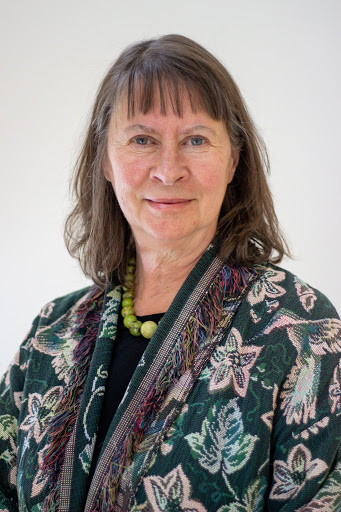The Faculty of Arts' Research Stories of the Year
Donna McKinnon - 14 December 2020

The complex problems of the 21st century — exacerbated this year by the stresses of the pandemic — can only be addressed effectively through curiosity-driven inquiry, critical and imaginative reflection, and bold action. In 2020, Faculty of Arts researchers brought their expertise to the table, informing conversations around key social issues and offering innovative, creative, and collaborative solutions.
Here are the research stories of 2020:
Historian Sarah Carter has reshaped our understanding of Western Canada
In May, the Canada Council for the Arts awarded Sarah Carter the 2020 Killam Prize in the Humanities, one of Canada’s most prestigious research awards. Over four decades, Carter has transformed our knowledge of Western Canada’s past, placing Indigenous people and gender relations at the centre of this history, reshaping our understanding of Canada as a settler nation.
Millennials and Gen Z are more anxious than previous generations
A popular explanation for generational anxiety is the "snowflake" thesis — that today's youth have been coddled by helicopter parents and allowed to avoid the responsibility and independence that foster mental resilience. But sociologist Lisa Strohschein says that view sells young people short, and they really do have it tougher than previous generations.
What we’ve learned from the Spanish flu — and what we haven’t
Earlier pandemics, such as the Spanish flu of 1918, produced strikingly similar shades of panic, political opportunism, racism, xenophobia and debates around public health versus the economy, according to University of Alberta historian Susan Smith.
Why some people think COVID-19 heralds the apocalypse
Apocalyptic discourse around COVID-19 is a trend Religious Studies instructor Glen Fairen is watching closely. As certain fundamentalist Christians will tell you, especially those of the Rapturist variety, the Bible's Book of Revelation forecasted the pandemic 2,000 years ago, and one of the four horsemen of the apocalypse - the pale one representing pestilence - is now figuratively galloping across the globe in advance of the Christ's return.
Confronting legacies of colonization in Canadian criminal law
On July 1, George Pavlich was named a Henry Marshall Tory Chair in recognition of his extraordinary record of scholarly research, teaching and educational leadership. Bridging the boundaries between sociology, criminology, and law, Pavlich brings an innovative and deeply ethical perspective to the crisis in the Canadian and international criminal justice system, illuminating the origins of the systemic inequities while providing insight into the challenges that lay ahead.
In June, the Social Sciences and Humanities Research Council awarded Elizabeth Sawchuk the Banting Postdoctoral Fellowship — the first Banting in Anthropology at the University of Alberta — to further her research into an ancient, tumultuous period in northern Kenya, now known as Lake Turkana, which has parallels to the current climate crisis not only in Africa, but around the world.
Supporting digital literacy and local innovation with Northern and Indigenous communities
Digital literacy – the ability to use and develop digital information and communication technologies (ICTs) – is threaded throughout all aspects of society. In northern and Indigenous communities, digital literacy can also reflect and support various aspects of self-determination, says Rob McMahon (Political Science), the recipient of the 2020 Killam Accelerator Award, granted to early career faculty members for their exceptional research output and the impact of their scholarly activity.
History of Black immigration sheds light on forgotten connection between Alberta and Oklahoma
Alberta's history and culture intersects with Oklahoma in many ways, not all pretty, says Russell Cobb, a self-described "Okie" and an associate professor of Spanish and Latin American studies in the Department of Modern Languages and Cultural Studies.
Using art and interdisciplinary collaboration to champion social and climate justice
A leader in research-creation practice and theory, Natalie Loveless (Art & Design) was named a Member of the College of New Scholars, Artists and Scientists by the Royal Society of Canada in September. A relatively new field in the university landscape, research-creation contributes to society by providing a space to use artistic methods as ways of thinking, and producing research outputs that matter to a world in crisis.
White supremacists are misappropriating Norse mythology
Scandinavian studies scholar Natalie Van Deusen says historical records and DNA evidence show that the age of Nordic racial purity touted by white-supremacist groups never existed.
Long-term study reveals unique insights into how we change as we age
The Edmonton Transitions Study, a landmark 35-year research project, has yielded surprising findings about happiness, relationships, and generational differences, says psychologist Nancy Galambos, who shares authorship on the study with sociologist Harvey Krahn and human ecologist Matthew Johnson.
COVID-19 contact tracing reveals ethical tradeoffs between public health and privacy
Using smartphones to track possible infection is ethical — as long as it’s done with users’ consent and doesn’t identify them, says University of Alberta ethics professor Geoffrey Rockwell who warns against misusing data.